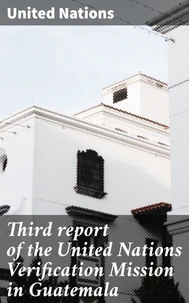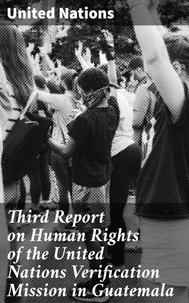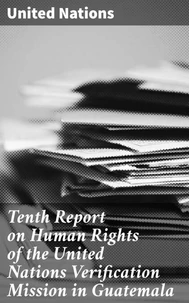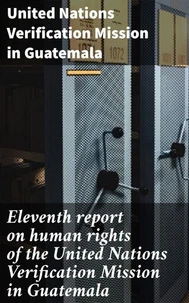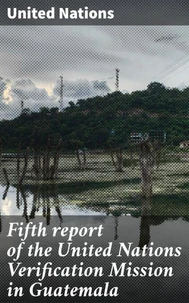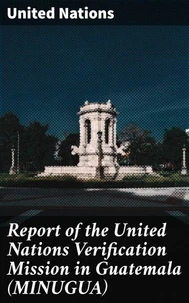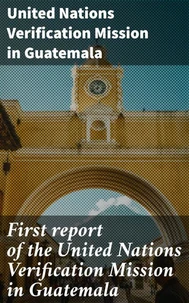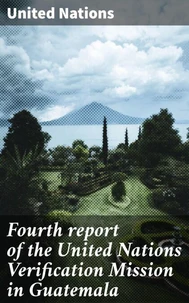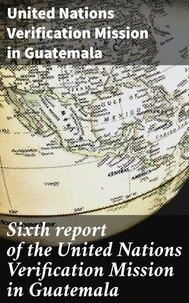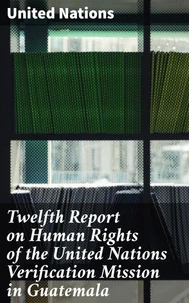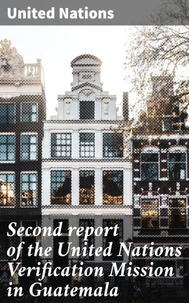Single Convention on Narcotic Drugs
Par :Formats :
Disponible dans votre compte client Decitre ou Furet du Nord dès validation de votre commande. Le format ePub est :
- Compatible avec une lecture sur My Vivlio (smartphone, tablette, ordinateur)
- Compatible avec une lecture sur liseuses Vivlio
- Pour les liseuses autres que Vivlio, vous devez utiliser le logiciel Adobe Digital Edition. Non compatible avec la lecture sur les liseuses Kindle, Remarkable et Sony
 , qui est-ce ?
, qui est-ce ?Notre partenaire de plateforme de lecture numérique où vous retrouverez l'ensemble de vos ebooks gratuitement
Pour en savoir plus sur nos ebooks, consultez notre aide en ligne ici
- Nombre de pages38
- FormatePub
- ISBN859-65--4716521-7
- EAN8596547165217
- Date de parution10/08/2022
- Protection num.Digital Watermarking
- Taille353 Ko
- Infos supplémentairesepub
- ÉditeurDIGICAT
Résumé
The "Single Convention on Narcotic Drugs" is a seminal legal document established by the United Nations in 1961, representing a pivotal effort to create a unified framework for the global control of narcotic substances. The Convention articulates the rights and obligations of countries regarding the production, distribution, and consumption of narcotic drugs, emphasizing an intricate balance between addressing medical needs and mitigating the public health risks associated with narcotic misuse.
Its formal and prescriptive style reflects the extensive deliberations of member states, rooted in the broader historical context of drug regulation and moral considerations surrounding substance use. Drawing upon his extensive experience in international law and public health, the United Nations, as the author of this document, sought to address the rising concerns over narcotic drug abuse during the mid-20th century.
The Convention was influenced by preceding international agreements and socio-political dynamics, positioning the UN as a facilitator of cooperation among nations for a comprehensive drug policy. This collaborative effort illustrates the complexity of synthesizing divergent national laws and public health policies while asserting the urgency of global standards. This book is indispensable for scholars, policymakers, and public health experts interested in drug regulation and international law.
It provides critical insights into the development of drug policies and the challenges of balancing health protection with societal norms. Readers are encouraged to engage with this foundational text to understand the implications of international narcotics control and its enduring impact on contemporary drug policies.
Its formal and prescriptive style reflects the extensive deliberations of member states, rooted in the broader historical context of drug regulation and moral considerations surrounding substance use. Drawing upon his extensive experience in international law and public health, the United Nations, as the author of this document, sought to address the rising concerns over narcotic drug abuse during the mid-20th century.
The Convention was influenced by preceding international agreements and socio-political dynamics, positioning the UN as a facilitator of cooperation among nations for a comprehensive drug policy. This collaborative effort illustrates the complexity of synthesizing divergent national laws and public health policies while asserting the urgency of global standards. This book is indispensable for scholars, policymakers, and public health experts interested in drug regulation and international law.
It provides critical insights into the development of drug policies and the challenges of balancing health protection with societal norms. Readers are encouraged to engage with this foundational text to understand the implications of international narcotics control and its enduring impact on contemporary drug policies.
The "Single Convention on Narcotic Drugs" is a seminal legal document established by the United Nations in 1961, representing a pivotal effort to create a unified framework for the global control of narcotic substances. The Convention articulates the rights and obligations of countries regarding the production, distribution, and consumption of narcotic drugs, emphasizing an intricate balance between addressing medical needs and mitigating the public health risks associated with narcotic misuse.
Its formal and prescriptive style reflects the extensive deliberations of member states, rooted in the broader historical context of drug regulation and moral considerations surrounding substance use. Drawing upon his extensive experience in international law and public health, the United Nations, as the author of this document, sought to address the rising concerns over narcotic drug abuse during the mid-20th century.
The Convention was influenced by preceding international agreements and socio-political dynamics, positioning the UN as a facilitator of cooperation among nations for a comprehensive drug policy. This collaborative effort illustrates the complexity of synthesizing divergent national laws and public health policies while asserting the urgency of global standards. This book is indispensable for scholars, policymakers, and public health experts interested in drug regulation and international law.
It provides critical insights into the development of drug policies and the challenges of balancing health protection with societal norms. Readers are encouraged to engage with this foundational text to understand the implications of international narcotics control and its enduring impact on contemporary drug policies.
Its formal and prescriptive style reflects the extensive deliberations of member states, rooted in the broader historical context of drug regulation and moral considerations surrounding substance use. Drawing upon his extensive experience in international law and public health, the United Nations, as the author of this document, sought to address the rising concerns over narcotic drug abuse during the mid-20th century.
The Convention was influenced by preceding international agreements and socio-political dynamics, positioning the UN as a facilitator of cooperation among nations for a comprehensive drug policy. This collaborative effort illustrates the complexity of synthesizing divergent national laws and public health policies while asserting the urgency of global standards. This book is indispensable for scholars, policymakers, and public health experts interested in drug regulation and international law.
It provides critical insights into the development of drug policies and the challenges of balancing health protection with societal norms. Readers are encouraged to engage with this foundational text to understand the implications of international narcotics control and its enduring impact on contemporary drug policies.



